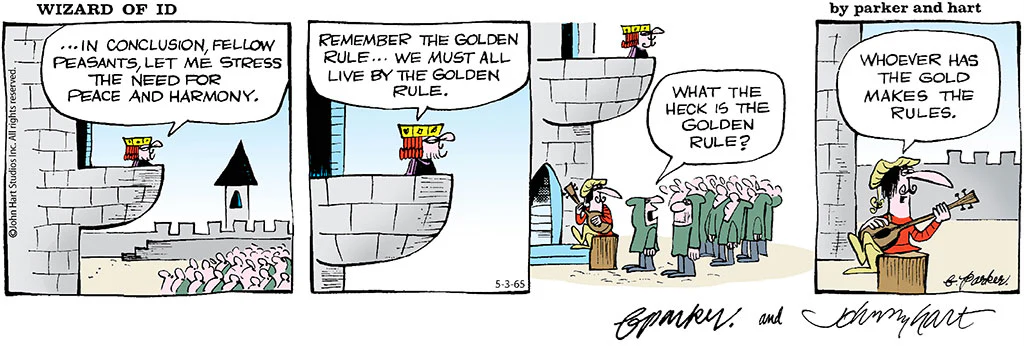 Growing up, I often remember my grandmother reaching into her pocket and handing me one peso to buy a treat. But before she handed it over, she would say, “You can only use 80 cents of that. Ten cents you have to save, and ten cents you have to give away.” The concept of giving was ingrained in me from an early age—an understanding that, no matter how little we have, there’s always room to share and help others.
Growing up, I often remember my grandmother reaching into her pocket and handing me one peso to buy a treat. But before she handed it over, she would say, “You can only use 80 cents of that. Ten cents you have to save, and ten cents you have to give away.” The concept of giving was ingrained in me from an early age—an understanding that, no matter how little we have, there’s always room to share and help others.
Philanthropy has long been a cornerstone of societal progress, much like my grandmother’s lesson. Its roots stretch back to ancient civilizations, where religious devotion drove the call to help those in need. Alms were given, hospitals were built, and orphanages were established. Over time, philanthropy evolved. Today, we give more, reach further, and use cutting-edge tools to enhance our impact. Yet, despite its evolution, the fundamental purpose and goal of philanthropy remains the same: to meet humanity’s needs and help others reach their potential.
![]()

![]()
When I think about the role of philanthropy throughout history, I’m struck by how central it has been to society’s progress. But lately, I’ve found myself asking, is that enough? Is helping people meet their immediate needs all we’re called to do? I don’t think it is—not anymore.
We are living through an unprecedented convergence of crises—what some call a “poly-crisis”—with overlapping challenges that threaten the well-being of communities. From the lasting impact of COVID-19 and worsening climate disasters, to growing economic inequality, political instability, and the housing crisis, these challenges require us to rethink philanthropy. Additionally, we must address the legacy of colonialism, support genuine reconciliation with Indigenous peoples, and continue advancing racial and social justice.
There’s no question that philanthropy has achieved great things in addressing some of these challenges. Still, as we reflect on where we’ve come from, we must acknowledge a deeper truth: if philanthropy is to meet society’s needs, it must go much further. This is where justice comes in. Justice, for me, isn’t simply about offering help —it’s about recognizing the deeper, systemic causes of the challenges that communities experience. This reality leads us to a critical question: are we truly doing enough to tackle the underlying causes of inequality? Philanthropy, after all, is an expression of power. The act of giving is often tied to the priorities of wealthy individuals or organizations. When those priorities align with society’s needs, the results can be transformative. But what happens when they don’t?
I am reminded of a comic strip from The Wizard of Id: “Whoever has the gold makes the rules.” This reminder captures the uncomfortable truth that those who control wealth often dictate the terms of progress. In that reality, the question remains: can philanthropy truly be a force for justice, or will it continue to reinforce the structures of power and inequality it seeks to change?
The audacity of justice lies in its boldness. It’s not just about meeting immediate needs—it’s about transforming the systems that create those needs in the first place. Justice demands more than incremental change. It calls for a redistribution of power, resources, and opportunity. It pushes boundaries, challenges the status quo, and dares to confront deeply embedded inequities head-on.
Philanthropy must work to remove the barriers that prevent people from thriving. The audacity of justice is the courage to reimagine a future where fairness isn’t the exception but the norm—a future where all communities have the power and resources they need to shape their own destinies.
Philanthropy’s potential is vast, but without ongoing reflection and a commitment to addressing the systemic barriers that perpetuate inequity, we risk continuing to operate in ways that maintain the status quo. Recognizing the origins of philanthropic wealth often reveals histories of inequality, exploitation, or privilege that helped build those fortunes. It’s a challenging path, but one worth pursuing. After all, philanthropy should not just be about giving —it should be about justice. Achieving justice requires us all to rethink who we give to and how we fund, partner, and learn.
Philanthropy stands at a crossroads. We have a chance to move beyond traditional practices and embrace approaches that are truly transformative. What if our actions were not just about delivering funds but about reshaping the systems that create and sustain inequity? This means rethinking not only what and who we fund but how we approach funding: pooling resources in ways that strengthen community-led initiatives, prioritizing flexible, long-term support, and embedding accountability to the communities we serve.
Real impact could mean stepping back and creating space for communities to define their own success, shifting from ‘granting’ to genuinely distributing resources, expertise, and even decision-making power on how funds are flowing. This means moving beyond traditional philanthropy to a more relational, integrated, and holistic approach. By engaging as true partners and sharing our suite of tools and assets —such as our ability to convene, gather and distribute knowledge, inform policy, make connections, support capacity, and leverage investment capital—we can create a meaningful impact. By moving together in this direction, we’re laying the groundwork for a philanthropy that enables lasting, systemic change.
![]()

![]()
I am inspired by and grateful to those philanthropic organizations who have been committed to this path – leading the way with a just and equitable approach to philanthropy. Your work sets an example for all of us and your action shows what’s possible. I believe that now, more than ever, philanthropy must be bold enough to follow their example. Collectively, we need to focus on transforming philanthropy and the systems that perpetuate inequality to make them equitable and just. The moment we’re in demands that kind of audacity—the audacity to reimagine, to challenge, and to change.
I’ll be the first to say that this journey is still a work in progress. Like many, we are still learning and building the muscles needed to take a truly justice-centred approach to philanthropy. Along the way, I’ve encountered real structural barriers that can’t be ignored, and addressing them takes time, persistence, and partnership. But I’m committed to this path, even if it means embracing some uncertainty and leaning into the hard work that comes with it.
Ultimately, this is about reshaping philanthropy to reflect our shared values of justice and equity, one step at a time. I still hold dear the value of charity I received from my grandmother, and this is important but we must not forget to address the underlying causes that perpetuate inequalities. Martin Luther King Jr. put it best when he said, “Philanthropy is commendable, but it must not cause the philanthropist to overlook the circumstances of economic injustice which make philanthropy necessary.” I invite us all to join in this journey — to challenge the status quo, to learn from each other, and to hold ourselves accountable as we work toward a more just and equitable future for all.

